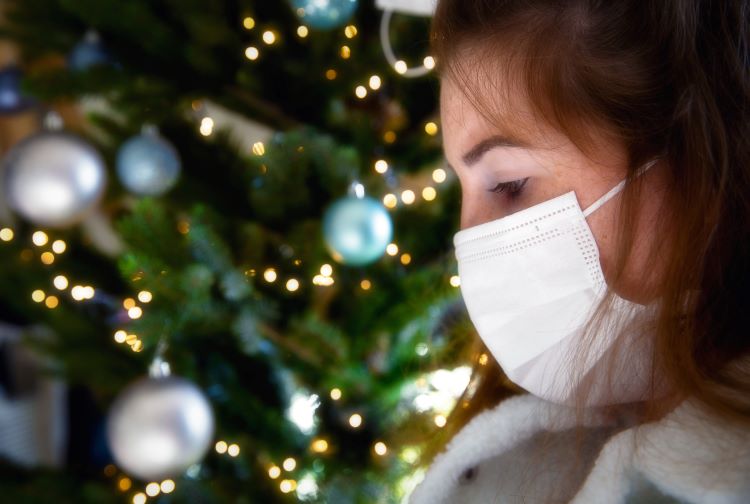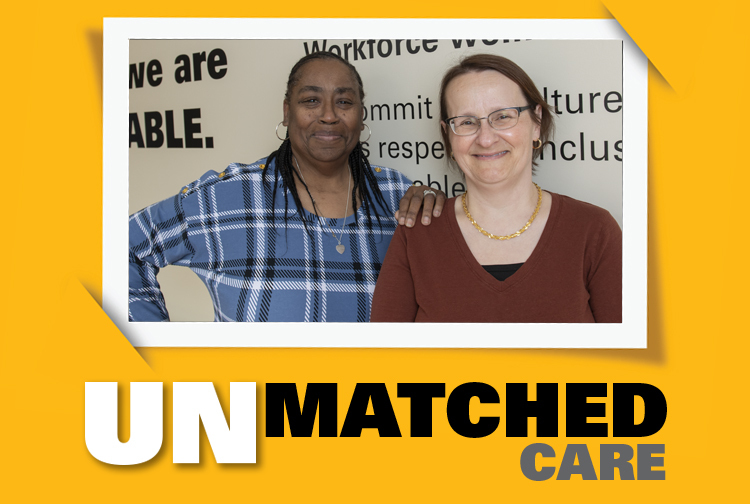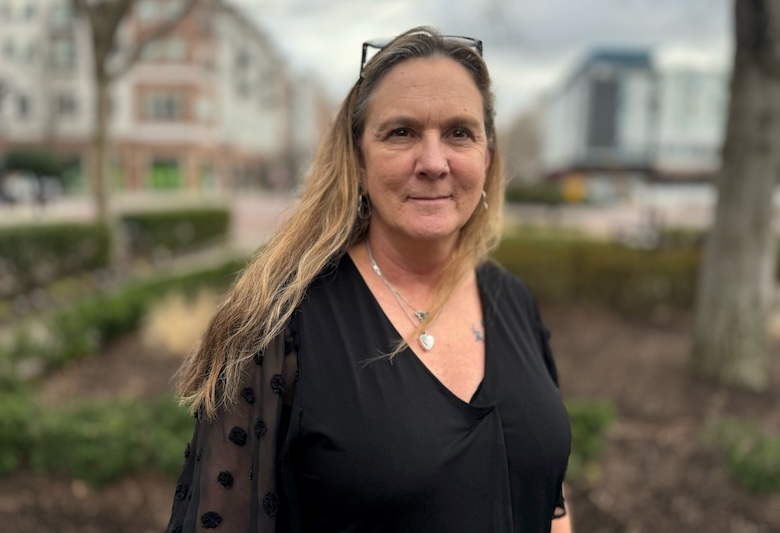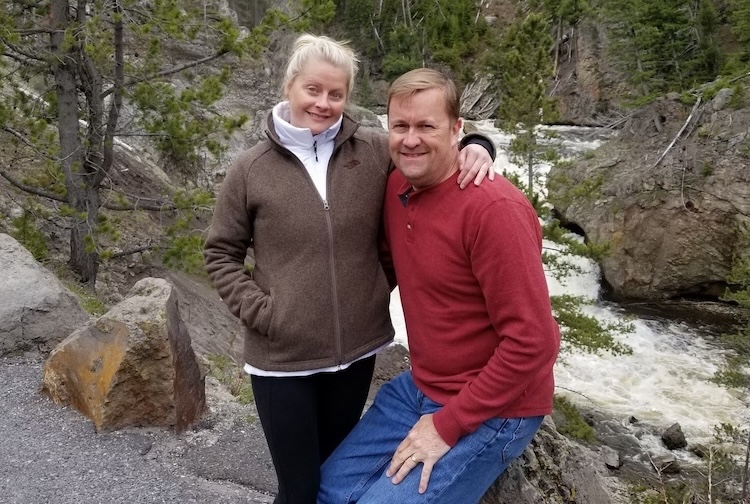
COVID-19 and transplant recipients: How to celebrate the holidays safely
Our transplant expert explains what you can do to lower your risk of COVID-19.
November 22, 2021 Photo: Getty Images
Photo: Getty Images

You already take extra precautions to keep yourself safe, like washing your hands a lot and avoiding crowds. But this is the holidays. Can you celebrate safely? Or do you have to stay home?
Here, infectious disease expert Dr. Megan Morales, director of transplant infectious diseases at Hume-Lee Transplant Center, answers questions on how transplant patients can lower their risk of acquiring COVID-19 during the holidays.
Is it safe for transplant recipients to attend holiday get-togethers?
Holidays this year will still be different. There is no way around that. The safest answer, of course, is no. However, for many people “pandemic fatigue” has set in, and with a long way to go before we have the virus under control, the holidays are still one thing we look forward to.
We understand your desire to celebrate, but we want you to celebrate in the safest way possible. It isn’t safe for transplant patients (or anyone else) to make the rounds of holiday parties, dinners and other social gatherings like you may have done before. COVID is still circulating in all states, and the U.S. is closing in on 800,000 COVID-related deaths.
Many things about the holidays put you at higher risk of catching COVID-19 — staying indoors due to weather, hugging, kissing and close contact when greeting, family-style meals, the flu and other respiratory viruses (two viruses at the same time may be an even bigger threat if you are immunocompromised), more errands in preparation for events (more trips to stores, malls, grocery shopping, etc.), singing and cheering, and having many events focus around food and drink (when masks are removed).
What can you do instead? Prepare special holiday meals with your household members, and stay in touch with distant friends and relatives by phone or video, watch parades or sporting events on TV from your home, and do your Black Friday or other holiday shopping online instead of in crowded stores.
If I attend a holiday gathering, what can I do to reduce my risk of catching the coronavirus?
Keep it small, with only a core group of family or friends who you know well and trust. That may mean only your household members, or maybe a second household joining you (say, your sibling and their household). It’s critical that you remind everyone of your immunocompromised status and that you are at higher risk of getting ill and being hospitalized if you get COVID-19. Most people who get infected with COVID-19 catch it from a family member. Everyone must agree to quarantine for two weeks before getting together. If they cannot commit to that, postpone until a time when it is possible. Having all members get COVID testing may provide a false sense of reassurance, since some people may have false negative results or be exposed in the days after they took the test.
What if I’m vaccinated?
Vaccination against COVID infection is a vital step in keeping yourself well during the pandemic. However, the medication you take to suppress your immune system from rejecting your transplanted organ also suppresses your response to vaccines. It is still vital to observe additional safety measures.
What if my family is vaccinated?
Making sure all eligible household members are vaccinated is very important. However, since the delta variant of COVID is so highly contagious they may still be able to transmit the COVID virus to others, even if they don’t have symptoms themselves. This would only apply for a short period, much shorter than spread from unvaccinated persons.
When should I accept or decline an invitation to a holiday gathering?
If it’s a party with many different households and people you don’t know, it’s not worth the risk and you should not attend. You don’t know if the others have been wearing masks, social distancing or avoiding crowds, or whether or not they've been vaccinated.
Focus on celebrating with close family or one or two friends who will quarantine for two weeks before you get together. Think creatively — drive by your friends’ homes to wave and cheer from your vehicle, have a virtual party or recipe swap, drop off traditional family meals or favorites at others’ doorsteps.
Is it safe for me to travel long distance to see family? Are planes, trains or buses safe? What about taxis or ride-sharing services?
Continue to be very cautious about travel, and stay close to home this year. Travel by car, if possible. Traveling by private vehicle is the only way to really ensure safe travel. If you don’t own a car, consider renting one, and limit your passengers to the people you live with.
If driving, bring food and water with you to avoid unnecessary stops at rest stops, or use fast-food drive- throughs over restaurants or rest stops. Wash your hands after pumping gas, and use soap and water after any bathroom stops.
Avoid ride-sharing services, as you have no control over who will be in the car with you. They may never wear face masks or practice social distancing. As many as one third of people with the virus may not have symptoms of COVID-19. They could share your ride, not knowing they’re infected, and you could easily catch it. A major study found that people sharing a vehicle with someone infected were three times more likely to get the coronavirus.
Ride-sharing services also have high-touch surfaces, such as door handles, which may not be cleaned between rides. If you arrange taxi or pick up service ahead of time at your destination, ask about their cleaning and safety precautions.
If you have to fly, try to limit your exposures. Choose short, nonstop flights and avoid layovers, if possible. Most airlines are no longer limiting capacity. Research safety precautions before you book.
We don’t recommend travel by train or bus at this time. Trains and buses may have limited air ventilation, and social distancing may be out of your control as people come and go. The longer you travel, the more difficult it may be to keep your face mask and eye protection, such as a face shield, in place, since you may need to eat, drink or shift position.
If you do decide to travel, research in advance any traveler restrictions or quarantines before you go. These may change at any time, so check for updates up until the time you travel. For instance, travelers from Virginia may be required to quarantine for 14 days upon arrival and/or show a recent negative COVID test in other states. Quarantine or stay home as much as possible when you get home, and ask your doctor if you should be tested before returning to work or school.
If I do travel by plane, train or bus, is there anything I can do to reduce my risk?
Person-to-person transmission from fellow passengers or staff are your greatest risks, although shared surfaces may pose a risk, as well.
With any mode of transportation, limit how much you touch surfaces — ticket kiosks, benches, handrails, escalator or stair bannisters, elevator buttons, touchscreens, turnstiles, seatback trays, baggage carousels, and bathroom surfaces. Clean your hands frequently with alcohol-based products, and wear your mask and eye protection throughout your travel. Avoid gathering in crowds at transit stations and stops.
There have been mixed reports about the safety of air travel and COVID exposure, with some reports citing low rates of transmission, but some individual flights spreading COVID to several passengers — and those passengers passing it to others later. The air in plane cabins is rapidly filtered. Point the air nozzle toward your seat and leave it running throughout the flight.
Try to distance yourself as much as you can. This may be easier if you buy tickets for off-peak days or hours. If you can, book a private sleeping car on the train. This is the safest means of train travel, as you will be distanced from others.
Is it safe for me to host overnight guests?
Limit your holiday celebrations to household members or small numbers of close family and friends who agree to quarantine for two weeks beforehand and observe safe practices. Working within those parameters, it may be reasonable for you to host someone as an overnight guest. Anyone not in your household should have a separate bedroom and bathroom.
Is it safe for me to be an overnight guest?
If you stay with close family or friends, be sure they have been quarantining for two weeks beforehand and that you have a separate bedroom and bathroom within the house, if possible. The risk of getting COVID-19 is five times higher when sharing a bedroom with an infected person.
Is it safe for me to stay at a hotel or home share?
You can have a safe stay in a hotel or private home share with preparation. Do your research ahead of time to find out what cleaning or hygiene practices are in place. Avoid high-touch surfaces such as handrails, lobby food or beverage set ups, door handles, luggage carts, etc. Don’t use hotel gyms, restaurants or bars, or other areas were people are gathering.
What protective measures should I take at the get-together?
If weather permits, have your holiday gathering or meal outdoors. Remember that close contact, even if outdoors, can still spread the virus. Eating outdoors is not a free pass for distancing and masking. Wash your hands frequently with soap and water or alcohol-based sanitizer for 20 seconds.
In addition, avoid gathering around buffet setups, drink stations, etc. Choose single-serve options or have someone designated to serve food or drink from large platters to avoid everyone handling the same items.
Is it safe for me to hug or kiss my relatives? Can I touch them at all, i.e., a pat on the back or on the arm?
You should limit your holiday gatherings this year to your household members or a very few close family and friends who you know have been quarantining in advance and observing safe practices. If you spend time with a larger group of relatives or cannot be sure of their COVID safety practices, avoid close contact with them. Observe physical distancing and masking.
Gathering outdoors is generally safer than indoors, but even close person-to-person contact outdoors is not failsafe for preventing transmission. Most people who get COVID-19 get it from family members. Being spoken to by someone with COVID-19 for 30 minutes or more at a distance of under 6 feet increases your risk of getting COVID by 3-8 times.
Is it safe for me to eat at restaurants?
You should not dine indoors at restaurants. Pick up curbside meals, instead, or have food delivered. Consider outdoor dining if a restaurant is properly spacing tables, all staff is masked, and they are observing safety measures.
For more information on COVID-19, please visit our COVID-19 news site. For more information on this particular topic, see:
- vcuhealth.org/news/covid-19/covid-19-and-the-holidays
- cdc.gov/coronavirus/2019-ncov/daily-life-coping/using-transportation.html#PublicTransit
- cdc.gov/coronavirus/2019-ncov/travelers/travel-during-covid19.html
This story was originally published November 17, 2020. It was completely updated and reviewed November 22, 2021.
Sign Up for Transplant E-Newsletter



